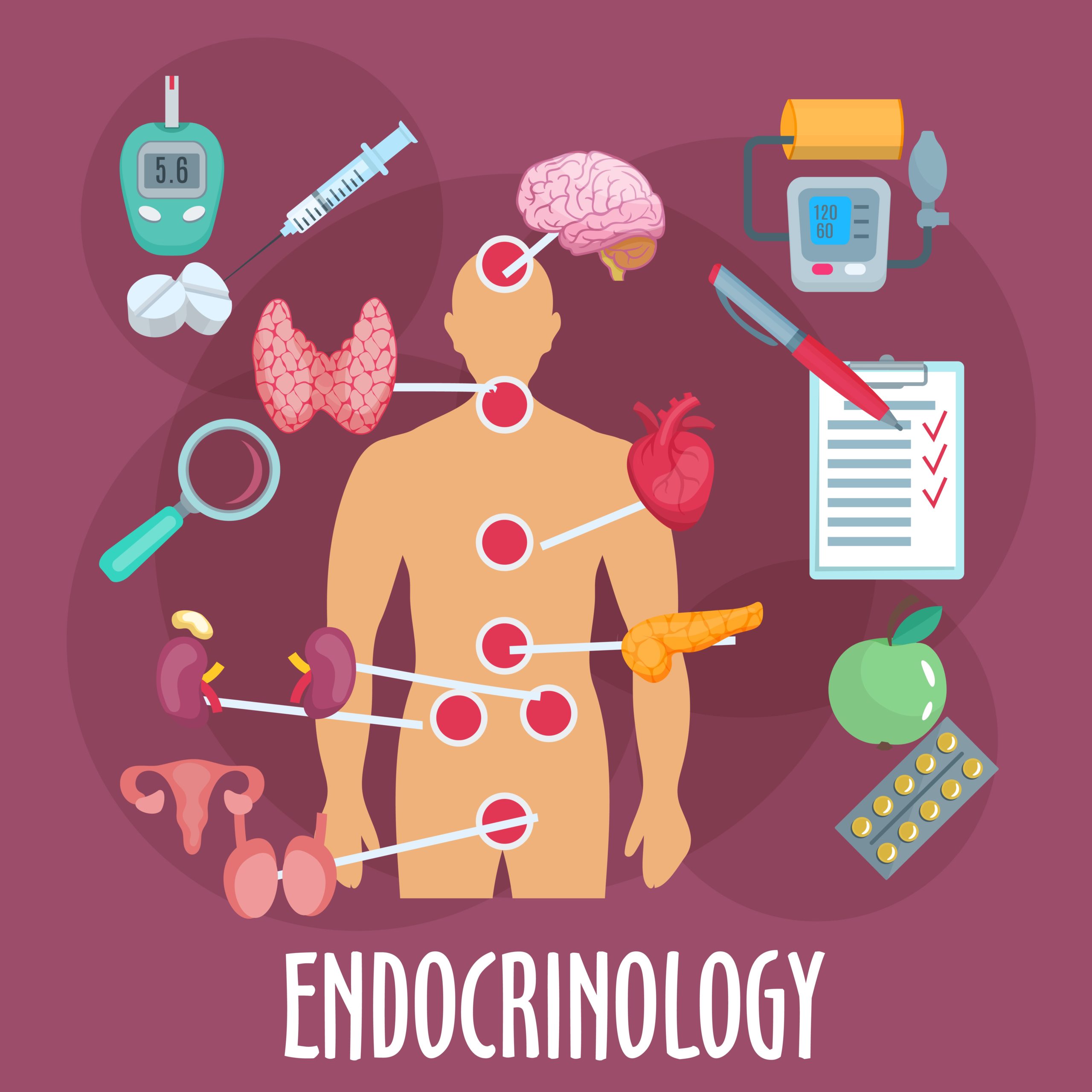Endocrinology: Delving into the World of Hormones and Health
Navigating the Intricacies of Thyroid Conditions With an Endocrinologist
In this short article, we will discover the importance of seeking specialist help from an endocrinologist when dealing with thyroid conditions. We will certainly dig right into the understanding of different thyroid conditions, the significance of precise diagnosis, and the readily available therapy alternatives. Additionally, we will go over the recurring administration and support required for people with thyroid disorders.
Understanding Thyroid Conditions
Thyroid disorders can be much better understood with guidance from an endocrinologist. The thyroid gland, located in the neck, creates hormonal agents that control numerous bodily functions. When this gland ends up being overactive or underactive, it can lead to an array of disorders. Hypothyroidism, for instance, occurs when the thyroid does not create enough hormones, resulting in signs and symptoms such as fatigue, weight gain, and clinical depression. On the various other hand, hyperthyroidism takes place when the thyroid generates an excess of hormonal agents, causing symptoms like weight-loss, rapid heartbeat, and anxiousness.
Understanding thyroid disorders requires a comprehensive examination of a patient's clinical history, physical evaluation, and research laboratory examinations. Endocrinologists specialize in the medical diagnosis and therapy of hormonal problems, consisting of thyroid problems.
Furthermore, endocrinologists know with the most up to date improvements in thyroid research, which enables them to supply the most effective and current treatment methods. Texas endocrinology. They can prescribe medication to manage hormone degrees, advise lifestyle modifications, and deal assistance on managing signs. In more complicated instances, they may team up with other professionals to guarantee thorough care

Significance of an Endocrinologist
An endocrinologist plays a vital function in the diagnosis and monitoring of thyroid conditions, offering customized competence and knowledge in hormonal disorders. With their considerable training in the endocrine system, these medical specialists are distinctively certified to assess and deal with thyroid conditions.
Among the key reasons an endocrinologist is very important in the monitoring of thyroid disorders is their capability to properly diagnose the problem. Thyroid problems can be complicated, with signs and symptoms that might overlap with other medical conditions. An endocrinologist has the know-how to conduct a complete assessment, including an in-depth medical background, physical exam, and specialized tests to precisely identify the specific thyroid disorder.
In addition, an endocrinologist is geared up to develop a tailored therapy plan for each individual patient. They consider elements such as the type and severity of the thyroid disorder, the patient's total health and wellness, and their preferences. This customized approach ensures that the therapy strategy is optimized for the individual's specific needs, leading to better results.
In enhancement to diagnosis and treatment, an endocrinologist likewise plays a critical duty in long-term monitoring of thyroid disorders. They monitor the patient's thyroid hormone levels, readjust medicine dosages if needed, and supply continuous support and education and learning to help people successfully handle their condition.
Detecting Thyroid Conditions
The endocrinologist's know-how expands to accurately identifying thyroid disorders with a detailed examination, including a detailed case history, physical evaluation, and specialized examinations (Best endocrinologist in austin). This strategy enables the endocrinologist to gather critical details regarding the client's symptoms, clinical history, and family members history, which can supply beneficial insights into the potential reasons for the thyroid condition
During the physical evaluation, the endocrinologist will meticulously examine the client's neck for any type of indications of swelling or irregularity in the thyroid gland. They might also look for other physical indicators, such as changes in hair structure, skin dry skin, or protruding eyes, which can be a sign of thyroid disorders.
Along with the clinical background and checkup, the endocrinologist might order specific examinations to more assess the function of the thyroid gland. These examinations might include blood tests to determine the degrees of thyroid hormonal agents, thyroid-stimulating hormonal agent (TSH), and antibodies that why not try this out may be connected with autoimmune thyroid conditions. Imaging examinations, such as ultrasound or nuclear medication scans, might also be performed to evaluate the size, shape, and framework of the thyroid gland.
Therapy Alternatives and Monitoring
The choice of treatment depends on the certain type and severity of the thyroid condition, as well as individual client factors. In cases of hypothyroidism, where the thyroid gland does not generate enough thyroid hormonal agents, the most usual therapy is hormone replacement treatment.
For hyperthyroidism, where the thyroid gland generates too much amounts of thyroid hormones, treatment options consist of medications, contaminated iodine treatment, or surgical treatment. Medicines, such as beta blockers, can be suggested to manage symptoms and decrease the manufacturing of thyroid hormones.
In enhancement to these conventional therapies, there are additionally alternative treatments that some people may take into consideration, such as herbal supplements, acupuncture, or dietary adjustments. It is important to note that these alternate therapies need to be talked about with an endocrinologist to ensure they are reliable and safe.
Long-Term Care and Support
Long-lasting care and support for people with thyroid conditions entails recurring surveillance and customized treatment prepares supplied by an endocrinologist. After a preliminary medical diagnosis and treatment, it is important for individuals to proceed getting routine follow-up like guarantee that their thyroid function stays stable and that any potential complications are determined and attended to immediately.
Routine tracking of thyroid hormone degrees via blood tests allows the endocrinologist to analyze the performance of the therapy plan and make any necessary adjustments. This close monitoring also makes it possible for the very early detection of any changes in thyroid feature and the recognition of possible regressions or problems, such as the development of blemishes original site or the progression of thyroid cancer. Depending upon the particular needs of the person, tracking may take place every few months or on an annual basis.

Verdict
With their knowledge and experience, endocrinologists can supply long-term care and assistance to people with thyroid disorders. By looking for the support of an endocrinologist, clients can get the necessary care and administration to properly navigate their thyroid condition. Endocrinologist in leander.
